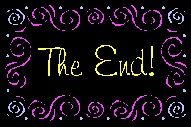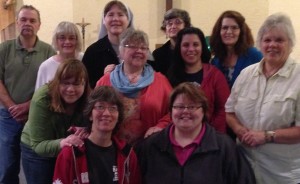From the President’s Desk – Failure Leads to Success
 “Has it ever occurred to you that a life without failure is a dead life? Because you learn by failing. If you don’t try things, you’ll never learn anything. You’ll never accomplish anything.” Catherine Doherty, Foundress of Madonna House
“Has it ever occurred to you that a life without failure is a dead life? Because you learn by failing. If you don’t try things, you’ll never learn anything. You’ll never accomplish anything.” Catherine Doherty, Foundress of Madonna House
Thomas Edison tried and failed on hundreds of attempts to create an electric light. Without failing, he would never have succeeded.
When it comes to writing, failure is necessary to succeed. I took writing courses in college, and I was a court reporter for many years, but I had no experience writing fiction, aside from the creative writing exercises in college. It should come as no surprise that when I first started writing fiction 14 years ago, I had no idea what I was doing. I just sat down and wrote. I remember thinking, This isn’t so hard. When I asked my husband to read part of my work in progress, he said, rather bluntly, “You’re not going to let anyone read this, are you?” I was crushed and felt like a failure but, in retrospect, my husband was absolutely right. That first attempt was terrible. So I trashed that manuscript, bought a few books on writing fiction, outlined the story, wrote character studies, then waited until summer so I could have uninterrupted writing time (I was homeschooling my five boys at the time). I went to adoration on the days I was writing and took my time drafting the novel.
Four months later, I shared it with my spiritual director and a few close friends. They gave me some helpful feedback. Later, I hired an editor (thinking she was a copy-editor, but she was actually a developmental editor). She eventually offered me a nine-page critique: half a paragraph on what was good with the manuscript and eight and three-quarters pages on what was in desperate need of improvement. There was an edge to her tone and by the time I reached the end of the nine-page critique, I was in tears. I was convinced that I was a failure at writing novels.
My husband, seeing how upset I was, suggested that I put the critique away for a few days. Then he recommended that when the initial shock wore off, I should go back and try to humbly discern if there was any merit in the editor’s suggested changes. When I eventually stepped back and considered all the changes, I ended up agreeing with most of her suggested edits. It took another year, but when I finished implementing the changes and sent it back to the same editor, she praised the manuscript and my edits and encouraged me to keep writing.
I learned a lot from that first experience with an editor. I learned that I need to be humble in accepting criticism. I learned that I need to have a thick skin when someone criticizes my writing. I learned that I will not agree with every piece of criticism. I learned that the editor is not paid to make me feel good, she is being paid to make my manuscript better. Although I initially felt like a failure, these are things I never would have learned without “failing” in the first several attempts at writing fiction.
A few months after that first book was published, the acquisitions editor of a Catholic publishing company read it. I received an email from her asking if I’d like to have a critique of the book. “Sure,” I said, confident that she wouldn’t have much to say, given all the feedback I had from a professional editor and friends. Instead, she shared with me that the book suffered greatly from “telling and not showing.” She advised me to write future manuscripts like they were a play and describe everything that was happening rather than telling the reader. Rather than “He was sad,” say, “His shoulders slumped and his eyes stared at the ground.” She gave me a few other pointers, then encouraged me to keep writing Catholic fiction.
Again, I felt like a failure. However, after humbling stepping back and reading the critique from this editor, I realized that she was right and I began changing the way I wrote.
My next book went on to win the Gold medal in the 2010 IPPY Awards for Religious Fiction, the first Catholic novel to win this award. All of my novels have been on bestsellers lists (Stealing Jenny, my third novel, was #1 in its category for 180 days of 2012). My newest book, A Subtle Grace, has been in the top 30 of Christian Historical Fiction and Christian Historical Romance for over a month and was in the top ten of six categories for two weeks. As of today’s date, the combined downloads of all my novels have just topped 585,000. Many look at those numbers and see “success.” However, without the previous “failures,” I would never have seen this “success.” And I am now also a busy fiction developmental editor and book coach.
For those of you who are still working on novels or non-fiction books, don’t give up! Don’t be afraid to “fail.” Failure can certainly lead to success.
One way to increase your chances of success is to become more active in the Guild (there are many resources within CWG), get to know your fellow CWG members and/or volunteer with the Guild. We could use volunteers for two committees: The Catholic Arts and Letter (CALA) Committee and the Membership Committee are in need of volunteers. If you’re interested, please contact me: president(at)catholicwritersguild(dot)(com).
We have new chairpersons for the CWG Blog: Kathryn Cunningham and Dennis McGeehan. Thank you, Kathryn and Dennis, for stepping forward! Special thanks to Jen Fitz, who was blog chairperson for many years!
Catholic Writers Conference Live: Registration is open for the Catholic Writers Conference Live, to be held July 22-24 in Somerset, NJ. Please consider joining us. There’s much to be learned from our varied speakers. And you will probably enjoy networking and fellowship with other Catholic writers, along with Daily Mass, Rosary and Confession.
Catholic Writers Retreat! Mark your calendars! CWG writing retreat coming soon! Prayer, reflection, writing, critique. What more could a Catholic want in a writing retreat? Oct 25-29 in DeWitt, MI.
As always, if you have any comments, questions or concerns, feel free to email me: president (at) catholicwritersguild (dot) (com).
In Jesus and Mary,
Ellen Gable Hrkach
President, Catholic Writers Guild
(Image purchased from iStock)










